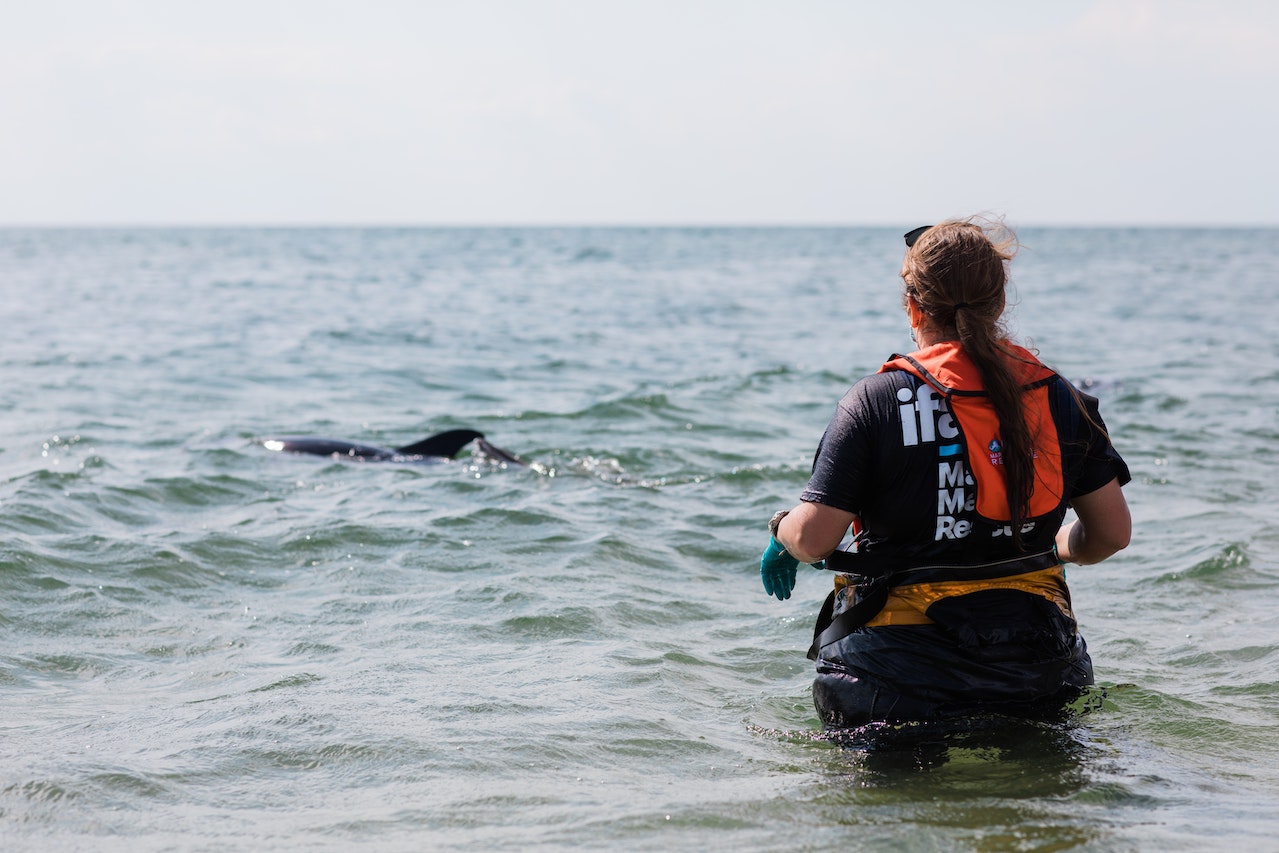Top High-Paying Jobs for Those Interested in Marine Life
Do you love the ocean? Are you fascinated by marine life? Did you know that there are jobs that allow you to work with the ocean and its inhabitants? In fact, you can explore the deep blue sea and make a good living at the same time. Not only does it provide a great way to experience the world from a different perspective, but there are some high-paying jobs available for those interested in marine life. So what are those careers? How can you kickstart your career as an ocean lover? This post highlights four of the best and top high-paying jobs for those interested in oceans.
Aquatic Veterinarian
 Aquatic veterinarians specialize in the medical care of aquatic animals. They treat a wide range of species, including dolphins, whales, seals, manatees, other marine mammals, and fish and reptiles. Aquatic veterinarians diagnose illnesses and injuries via physical examinations or advanced tests such as ultrasounds or CT scans. They also provide preventative care, such as vaccinations and nutrition plans. To become an aquatic veterinarian, you should expect to complete a four-year college degree, followed by a Veterinary Medicine Doctorate or DVM program.
Aquatic veterinarians specialize in the medical care of aquatic animals. They treat a wide range of species, including dolphins, whales, seals, manatees, other marine mammals, and fish and reptiles. Aquatic veterinarians diagnose illnesses and injuries via physical examinations or advanced tests such as ultrasounds or CT scans. They also provide preventative care, such as vaccinations and nutrition plans. To become an aquatic veterinarian, you should expect to complete a four-year college degree, followed by a Veterinary Medicine Doctorate or DVM program.
Marine Engineer
If aquatic veterinarians focus on the medical care of aquatic animals, marine engineers focus on designing, constructing, and maintaining vessels that would be used in marine environments. Marine engineers can work in a variety of industries, including shipbuilding or repair, offshore oil drilling, and undersea exploration. They are responsible for planning the structural design of various vessels and their systems and ensuring their proper functioning. To become a marine engineer, you should expect to complete an engineering degree and specialized maritime operations and navigation courses.
Oceanographer
Do you love capturing the beauty of the deep ocean many people rarely get to see? If so, consider pursuing a career as an oceanographer. Oceanographers focus on studying oceans and their physical, chemical, and biological properties. They use tools such as satellites, sonar, submersibles, and other instruments to collect data about the ocean. With these data, they can analyze ocean phenomena like currents and climate patterns. To become an oceanographer, you should expect to complete a degree in Oceanography or a related field such as Biology, Physics, or Chemistry. Then, have proper photography skills underwater.
Marine Environmental Scientist
What can be done to protect our oceans from ever-increasing threats such as pollution, climate change, and overfishing? Marine environmental scientists are specialists in identifying and assessing the effects of human activities on marine ecosystems. They also develop strategies that would help mitigate these impacts and promote ocean conservation. To become a marine environmental scientist, you should expect to complete a degree in Environmental Science, Marine Biology, or a related field. Depending on your specialization, additional qualifications, such as an advanced degree in Oceanography, may be required.
Ultimately, if you are interested in oceans and marine life, there are many rewarding career opportunities for you to explore. From aquatic veterinarians who provide medical care for aquatic animals to oceanographers who capture the beauty of the deep sea, each of these top high-paying jobs will enable you to make a positive impact in preserving our oceans and their inhabitants. So get ready to dive into the career opportunities for those interested in marine life.…
Read More »